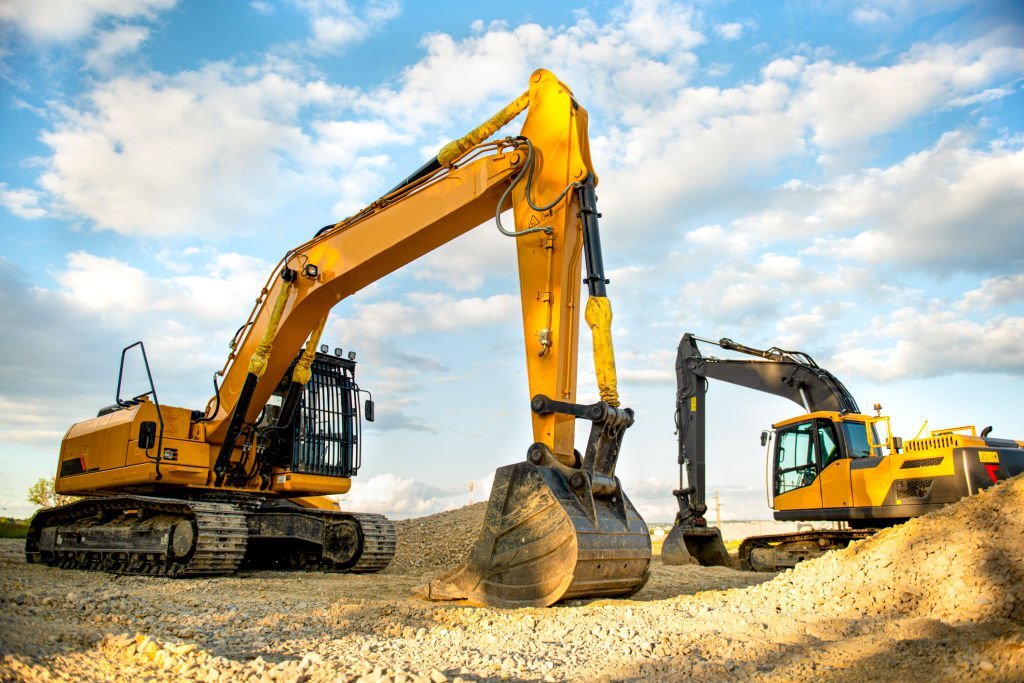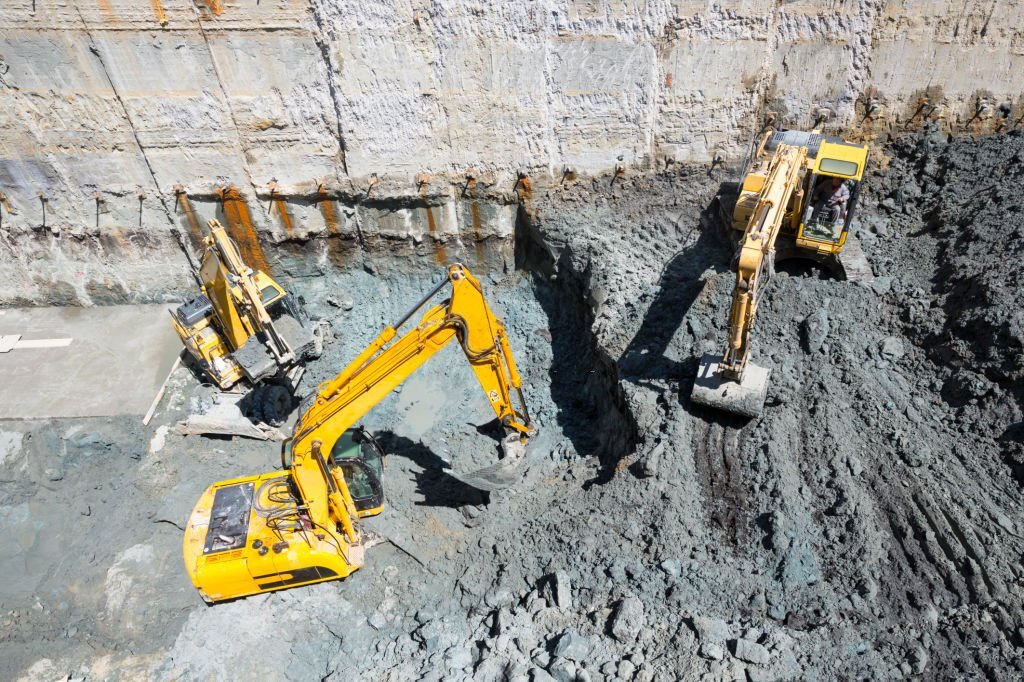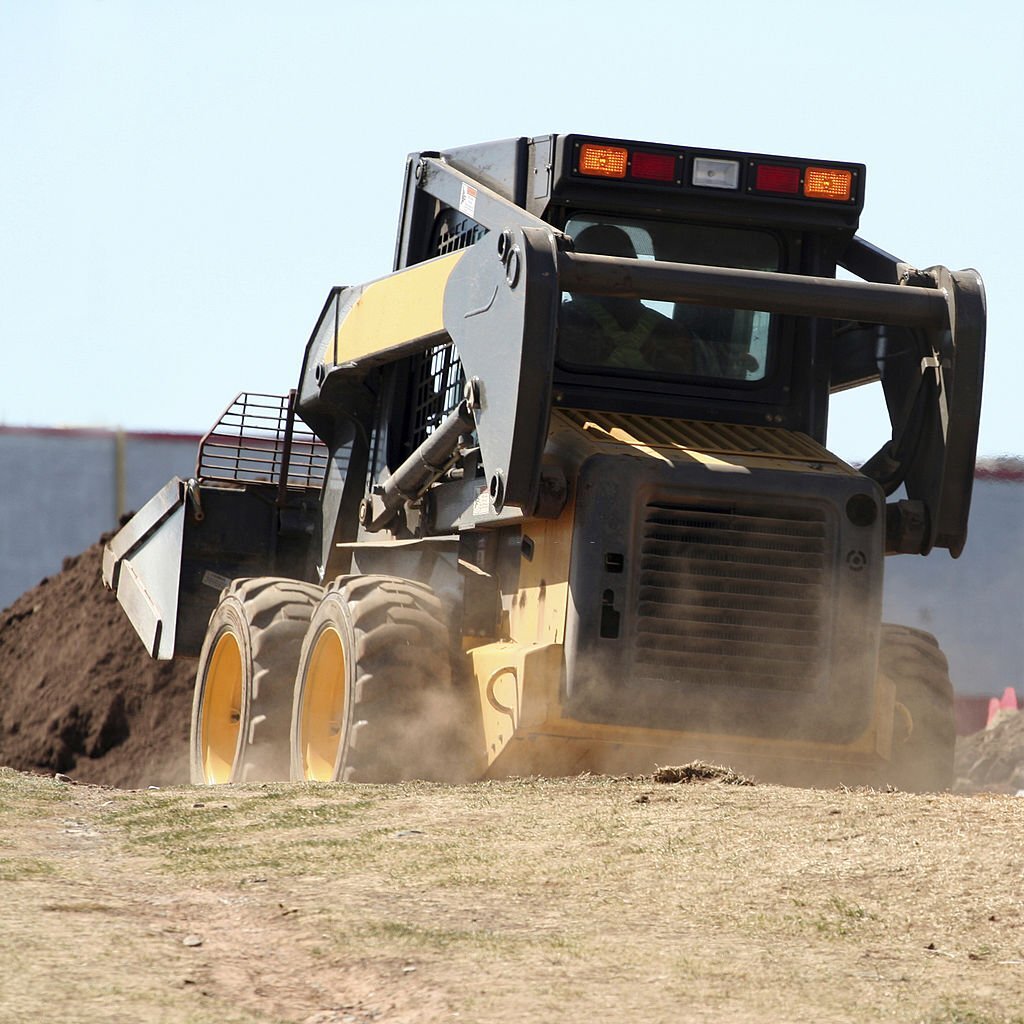
An excavator, also known as a digger or a mechanical shovel, is a heavy construction machine that plays a vital role in various industries. It consists of a bucket, boom, dipper, and cab mounted on a rotating platform known as the house.
Excavators are powered by hydraulic systems and are capable of performing a wide range of tasks with exceptional precision and power. The importance of excavators in modern-day construction and industrial operations cannot be overstated.
These versatile machines have revolutionized the way we undertake projects that involve earthmoving, digging, and material handling. From small residential landscaping projects to large-scale commercial developments, excavators have become indispensable asset for contractors and operators across the globe.
Definition and Brief Overview of an Excavator
An excavator is essentially a piece of heavy machinery designed to perform various excavation tasks with efficiency and accuracy. Its key components include the boom (which extends from the machine’s base), the dipper (which holds the bucket), the bucket itself (used for digging or scooping up materials), and the cab (where an operator controls all machine functions).
Excavators come in different sizes to cater to specific project requirements—ranging from compact mini-excavators designed for tight spaces to large hydraulic excavators used in major construction sites. They can rotate 360 degrees on their undercarriage, allowing them to work in any direction without relocating.
Importance of Excavators in Various Industries

The versatility offered by excavators makes them irreplaceable machines across multiple industries. In construction, they are used extensively for digging foundations, creating trenches for pipelines or utility installation, or even shaping landscapes for architectural projects such as parks or golf courses. Excavators are also indispensable in the demolition industry, where their power and precision enable the controlled dismantling of structures.
By utilizing hydraulic attachments such as breakers or shears, excavators can demolish buildings efficiently and safely, reducing manual labor and minimizing environmental impact. Moreover, these machines play a crucial role in logistics and material handling operations on construction sites.
They are responsible for loading and unloading heavy materials, removing debris, and transporting equipment or supplies around the job site. Excavators equipped with specialized attachments like grapples or magnets can handle various materials such as timber, scrap metal, or concrete with ease.
The significance of excavators also extends to industries beyond construction. In mining operations, excavators are used for extracting minerals from the earth’s surface or sorting materials in processing plants.
Similarly, within the forestry sector, they aid in land clearing for logging activities or handling timber during harvesting processes. Excavators even find unique applications outside traditional industries.
Archaeological excavations rely on these machines to carefully uncover historical artifacts without causing damage. Additionally, advanced underwater excavators are employed for dredging rivers or harbors as well as salvaging sunken ships or objects.
The incredible versatility and functionality of excavators have made them indispensable in a wide range of sectors. From construction to mining to archaeology—these machines continue to shape our world by enabling efficient excavation tasks that would be nearly impossible to complete manually.
Digging and Excavation

Trenching for foundations, pipelines, or utilities
Excavators play a crucial role in digging trenches for various construction projects. One of the primary applications is trenching for foundations, whether it be for residential or commercial buildings. Excavators efficiently and precisely carve out the required depth and width to create a stable base for the structure.
This process involves removing soil or rock layers to reach the appropriate depth, allowing builders to proceed with the foundation laying. In addition to trenching for foundations, excavators are instrumental in creating trenches for pipelines or utilities.
Whether it’s installing water supply lines, electrical cables, or sewage systems, excavators have the power and versatility to dig narrow trenches while maintaining accuracy and efficiency. With their hydraulic attachments such as trenching buckets or specialized trenchers, they can easily cut through various soil types or even rocky terrains.
Excavating for basement construction or swimming pools
Another common use of excavators in construction is excavation work required for basement construction or swimming pool installation. Excavating a site to create a basement requires precision and meticulousness as it involves removing large amounts of earth while ensuring structural integrity.
Excavators equipped with grading buckets can quickly remove soil and debris from the area while maintaining stability. Similarly, when it comes to creating swimming pools, excavators become indispensable tools in shaping the space according to desired specifications.
With their ability to dig large areas efficiently, excavators simplify the excavation process by quickly removing excess soil from the pool site. They facilitate achieving accurate dimensions essential for proper pool installation and ensure effective water drainage during construction.
Material Handling and Transportation
Excavators are not solely limited to digging; they also excel at material handling tasks on construction sites. One of their key roles is loading and unloading various construction materials such as gravel, sand, cement, or steel beams.
Equipped with grab buckets or hydraulic thumbs, excavators have the dexterity to efficiently lift and move heavy loads, saving both time and manual labor. Furthermore, in addition to moving loose materials, excavators are adept at transporting large objects within construction sites.
Whether it’s positioning precast concrete components or transferring heavy machinery from one location to another, excavators provide the necessary muscle and flexibility. Their hydraulic systems allow for precise control during lifting and transportation operations while ensuring optimal safety protocols.
Within the realm of construction, excavators find widespread use in digging trenches for foundations and utilities. They excel at excavation work required for basement construction or swimming pool installation.
Moreover, these versatile machines play a crucial role in material handling tasks such as loading and unloading construction materials or efficiently moving heavy objects on construction sites. Excavators’ ability to perform these common tasks with precision and efficiency makes them indispensable assets on any construction project.
Specialized Applications of Excavators
Demolition and Wrecking Activities
Subtitle: Unleashing Controlled Destruction When it comes to demolishing buildings or structures, excavators prove to be invaluable tools.
With their immense power and precision, these machines can safely and efficiently bring down even the most formidable edifices. Equipped with hydraulic attachments specifically designed for demolition work, such as breakers and crushers, excavators are capable of breaking concrete or other hard materials with utmost ease.
For the purpose of razing buildings or structures, excavator operators meticulously plan each step of the process. They strategically dismantle the construction from top to bottom, ensuring that debris is contained and safety regulations are followed.
By skillfully maneuvering the excavator’s arm, attachments like breakers are employed to weaken structural elements before carefully removing them piece by piece. This method allows for controlled destruction, minimizing potential hazards and damage to surrounding areas.
Landscaping and Earthmoving Projects

Subtitle: Sculpting Nature’s Canvas Excavators play a vital role in transforming landscapes into breathtaking gardens, parks, or golf courses.
Their versatility allows them to shape terrain with remarkable precision so that designers’ visions can come to life. Whether it involves leveling uneven ground or creating intricate contours on vast expanses of land, excavators provide unmatched efficiency in executing landscaping projects.
In garden design or park development projects, excavators sculpt the earth according to predetermined plans. They delicately carve out gentle slopes or terraces while meticulously maintaining soil stability throughout the process.
Additionally, these machines aid in creating ponds, lakes, or water features by expertly digging out basins and shaping shorelines with exceptional accuracy. Excavator operators collaborate closely with landscape architects to ensure that every detail aligns perfectly with their vision for an aesthetically pleasing outdoor space.
By harnessing the power of excavators, landscaping professionals can achieve impressive results efficiently and with a high degree of precision. These machines revolutionize the way we shape and mold nature’s canvas, bringing landscapes to life in harmonious harmony with human imagination.
Excavators demonstrate their adaptability through specialized applications such as demolition and wrecking activities as well as landscaping and earthmoving projects. These mighty machines enable controlled destruction during demolitions by employing hydraulic attachments designed to break down concrete and other sturdy materials.
Moreover, they contribute to the transformation of barren land into stunning outdoor spaces by sculpting terrain for gardens, parks, and golf courses, or even creating charming water features. Excavators exemplify their versatility in diverse industries, making them indispensable tools for professionals seeking both efficiency and precision in their work.
Unique Uses of Excavators in Specific Industries
Mining Industry Applications
Subtitle: Unearthing the Earth’s Riches In the realm of mining, excavators play a pivotal role in extracting valuable minerals from beneath the Earth’s surface.
Equipped with sturdy buckets and powerful hydraulic systems, these machines are capable of breaking through rock formations and scooping up vast amounts of materials. The excavator’s ability to dig deep trenches, remove overburden, and access mineral deposits makes it an indispensable tool for this industry.
When it comes to extracting minerals, excavators are employed in various ways. One primary application involves open-pit mining, where the excavator assists in creating vast pits to access mineral-rich layers.
With their hydraulic attachments such as ripper teeth or rock breakers, these mighty machines can fracture hard surfaces and initiate the excavation process. Additionally, they facilitate the loading of extracted materials onto haul trucks for transport to processing plants.
Furthermore, excavators find use in sorting materials within mining operations. Specialized attachments such as sorting grapples or screening buckets enable efficient separation of different grades or sizes of mined materials.
This allows for accurate classification before further processing or transportation. By employing advanced technological adaptations like magnetic separators or shaker buckets, excavators enhance efficiency by ensuring valuable ores are separated from unwanted debris.
Forestry Operations
Subtitle: Nurturing Nature’s Bountiful Harvest In the realm of forestry operations, where land management and timber harvesting harmoniously coexist with environmental stewardship principles, excavators prove their worth once again. These versatile machines aid in clearing land for logging activities while minimizing environmental impact and maximizing operational efficiency.
One crucial task performed by excavators is land clearing before logging commences. Equipped with specialized attachments like mulchers or shears mounted on hydraulic arms, they can efficiently remove vegetation while preserving the integrity of the soil.
By selectively removing trees and undergrowth, excavators provide access to logging equipment, ensuring a smooth workflow within the forestry operation. Excavators also excel at handling timber during logging operations.
Equipped with grapples or tree shears, they delicately maneuver through dense forests to extract felled trees. The precision and strength of these machines allow for safe and efficient handling of timber, reducing the risk of damage to surrounding trees or infrastructure.
Moreover, excavators can sort and stack logs neatly for transportation purposes, further streamlining logistical processes within the forestry industry. Excavators display their adaptability and prowess in various industries beyond construction.
Their unique uses in mining and forestry showcase their ability to tackle specialized tasks with remarkable dexterity. From unearthing precious minerals to nurturing a sustainable timber harvest, these machines leave an indelible mark on specific sectors where their power and versatility are harnessed to maximize productivity while minimizing environmental impact.
Uncommon Utilizations of Excavators
Archaeological Excavations: Uncovering History with Precision
In the realm of archaeology, excavators have become indispensable tools for unearthing ancient artifacts and uncovering hidden historical remains. The delicate nature of this work requires a careful approach to ensure the preservation of these precious relics. Using excavators equipped with specialized attachments, such as fine-toothed buckets or brushes, archaeologists can carefully remove layers of soil in a controlled manner.
By employing precise digging techniques, they can avoid damaging fragile objects and meticulously expose artifacts without compromising their integrity. This allows for a meticulous examination and analysis that sheds light on our past.
Underwater Operations: Delving into the Depths
Excavators are not limited to land-based operations alone; they are also extensively used in underwater activities. Dredging operations employ excavators to remove sediment build-up from rivers, lakes, and harbors, ensuring navigability and maintaining water quality.
With hydraulic arms capable of reaching considerable depths below the water surface, these excavators effectively remove silt and debris while minimizing disturbance to aquatic ecosystems. Additionally, excavators play a vital role in salvaging sunken ships or objects lost beneath the waves.
Equipped with special features like retractable pontoons or buoyant attachments, they can be submerged underwater while still maintaining stability and maneuverability. These underwater excavations allow for the recovery of historically significant artifacts and provide invaluable insights into maritime history.
Conclusion
Throughout various industries, from construction to archaeology and marine operations, excavators exhibit their versatility by performing an array of tasks beyond their conventional uses. These remarkable machines facilitate archaeological discoveries by delicately unearthing ancient artifacts without causing damage.
Moreover, their adaptability extends even to underwater environments where they enable dredging operations for maintaining waterways and salvaging submerged treasures. The remarkable ability of excavators to fulfill such diverse roles highlights the ingenuity of human innovation and the progress we have made in harnessing technology for our benefit.
With each new application, these machines continue to evolve, pushing boundaries and opening doors to new possibilities. As we look ahead, it is both exciting and reassuring to know that the potential uses of excavators are yet to be fully realized, promising further advancements in various fields.



